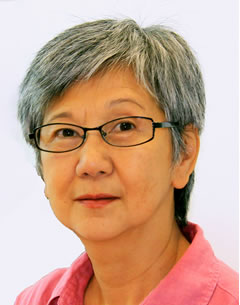
Aihwa Ong
Professor of Socio-cultural Anthropology, University of California, Berkeley
Bernard Moses Memorial Lecture
March 12, 2014 — 4:10 PMToll Room, Alumni House — UC Berkeley Campus
About the Lecture In 1998, the Human Genome Project sought to represent humanity in general. In contrast, a few years earlier, NIH promoted the study of race in the human genome. This talk discusses the impact of the two events … Continued
Toll Room, Alumni House - UC Berkeley Campus Berkeley Graduate Lectures [email protected] false MM/DD/YYYYAbout the Lecture
In 1998, the Human Genome Project sought to represent humanity in general. In contrast, a few years earlier, NIH promoted the study of race in the human genome. This talk discusses the impact of the two events on genomic science in Biopolis, a biomedical hub in Singapore. Professor Ong examines Asian scientists’ claims “This is where the variants are,” and why their DNA map is “more valuable” than genetic databases from the West.
About Aihwa Ong
A foreign-born anthropologist with an interdisciplinary approach to research and scholarship, Aihwa Ong is a major contributor to current debates on emerging global culture. While her work has focused for the past several decades on political, cultural and technological entanglements in the Asian Pacific rim, her most recent work has turned toward intersections of biotechnology, ethics and governance in Southeast Asia and China. Several of Ong’s concepts, most notably “flexible citizenship,” “graduated sovereignty,” and “global assemblages,” have become a part of the shared lexicon of ideas used in discourses of globalization and modernity. Ong’s work has offered challenging new perspectives on neoliberalism, political sovereignty and citizenship that are indispensable in our attempts to comprehend the dynamic complexities of the current world-historical moment. Her current affiliations at UC Berkeley include the Blum Center for Developing Economies, the Global Metropolitan Studies Center, and the Center for Chinese Studies.